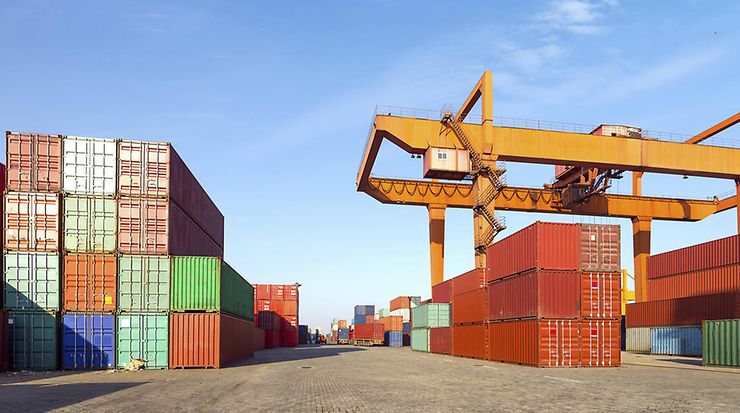Global trade
Standards are the "lingua franca" of world trade

International and European Standards provide a common technical language for trade partners throughout the world. For businesses active globally, International Standards are a major criteria for assessing the suitability of potential business partners and suppliers. They also ensure the compatibility and quality of products and services. The results of a study on the economic benefits of standardization has shown that 84 % of manufacturing companies in Germany use European and International Standards to gain access to global markets.
One reason for this is that standards help lower non-tariff trade barriers, thus promoting global trade. In fact, in its "Agreement on Technical Barriers to Trade", the World Trade Organization (WTO) recommends adopting international standards in the interest of global free trade.
The WTO's "Code of Good Practice for the Preparation, Adoption and Application of Standard" lays down the following rules:
- No preference shall be given to domestic products
- National standards shall not create "unnecessary obstacles" to international trade
- Relevant International Standards shall be adopted nationally
- International standards shall be developed by national delegations
- Duplication of work shall be avoided
- International standards shall be developed on the basis of national consensus
- The consistency of the body of standards shall be ensured
- Work programmes shall be published
- There shall be at least a 60 day period for submitting comments to drafts
- All comments shall be given equal treatment
In Europe standardization is a fundamental aspect of the Internal Market The collection of harmonized European Standards ensures free trade within the Internal Market and strengthens the competitiveness of businesses active in the EU. Standardization is thus an essential instrument for success on global markets.